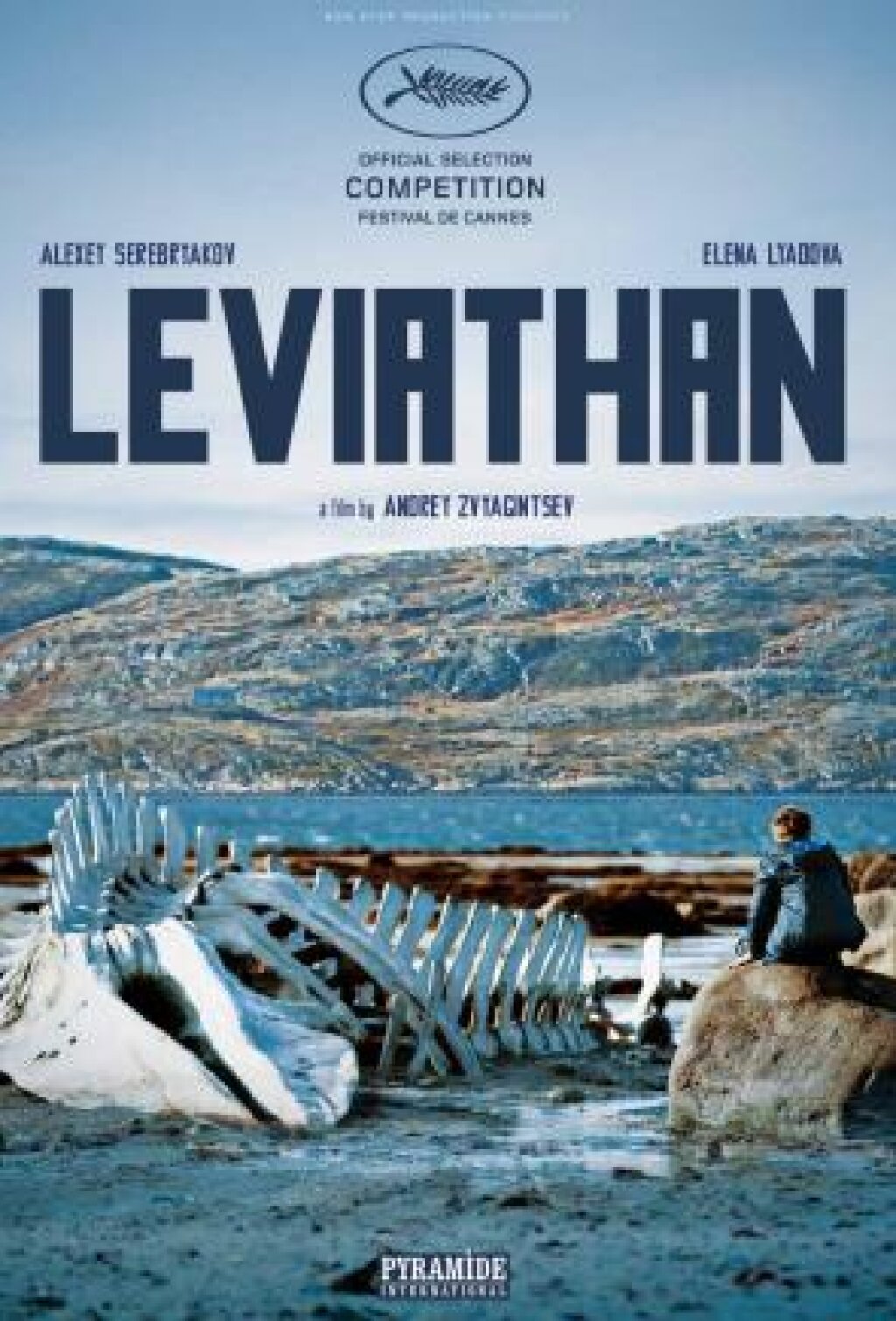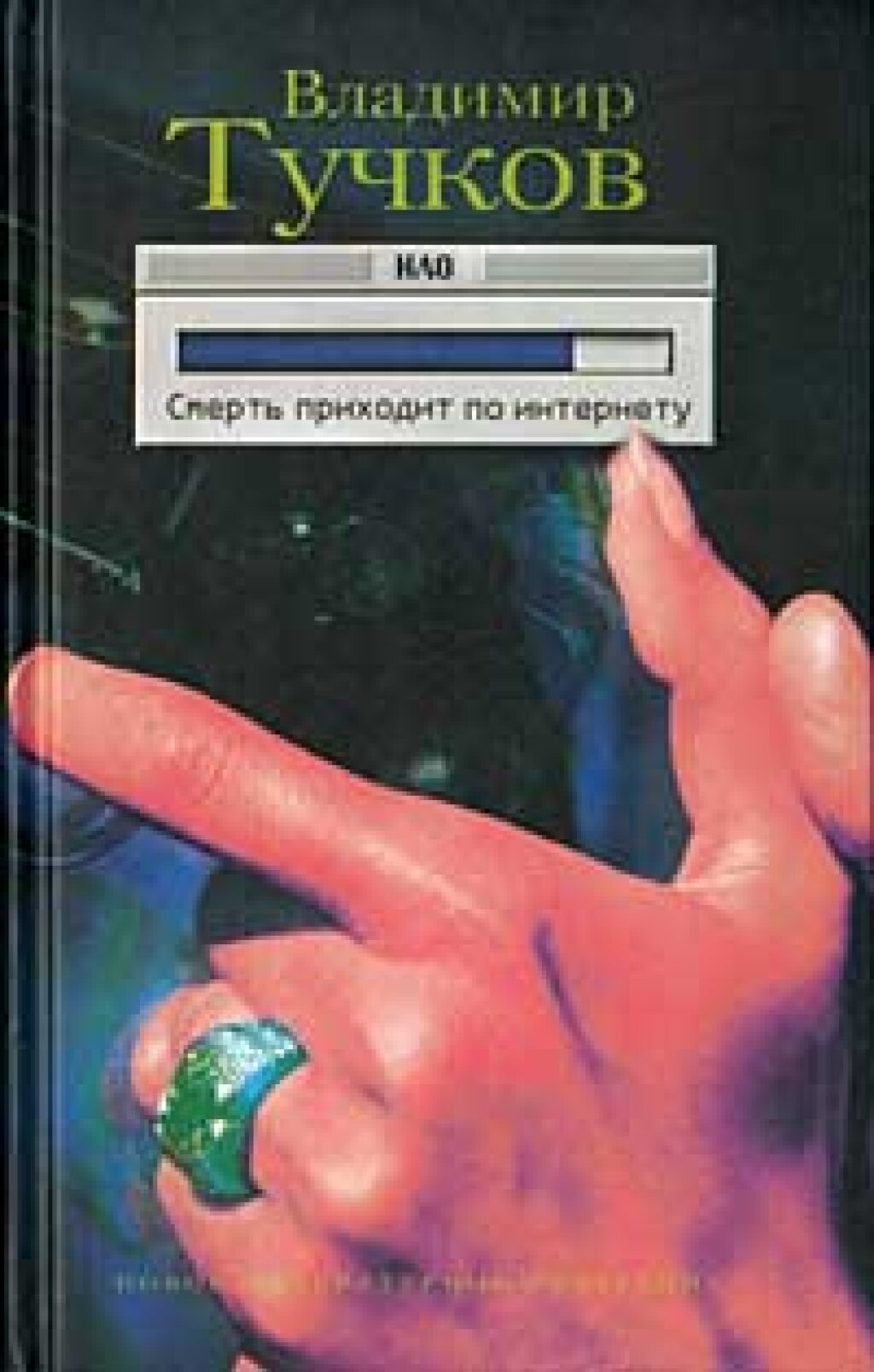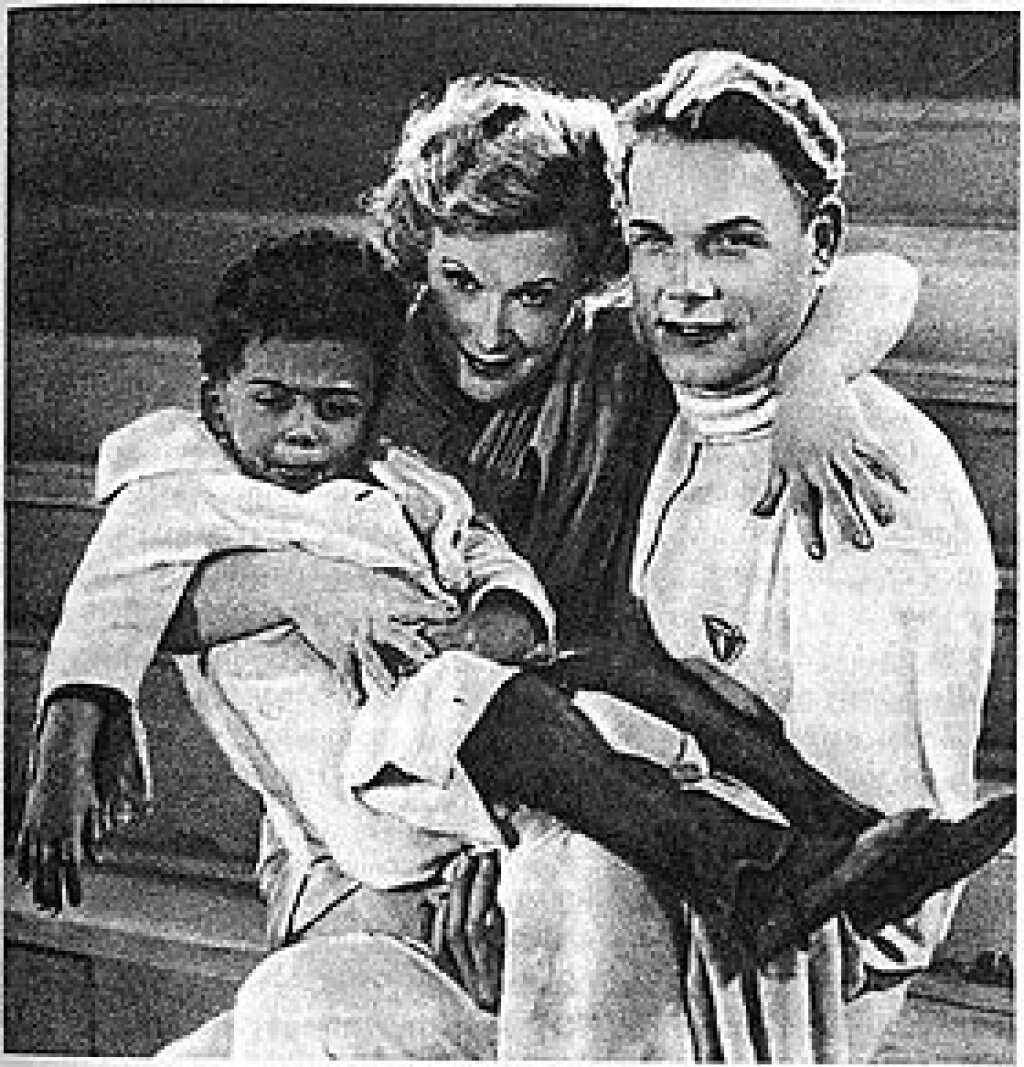James Rann is a Lecturer in Russian at the School of Languages, Linguistics and Film (SLLF), Queen Mary University of London (QMUL).
By the end of Andrei Zvyagintsev’s Leviathan, I wanted to scream. Skilfully coaxed by the director further and further into full awareness of the possible depths of misery, I needed to vent my anger — generally, at man’s inhumanity to man, but, more specifically, and more urgently, at Russians’ inhumanity to Russians.
Leviathan is, critics agree, a bravura piece of filmmaking, an ambitious tragedy which manages to combine acuity and emotional heft, petty squalor and transcendent beauty. It is was a worthy winner of the London Film Festival, where I saw it, and its selection as Russia’s entry for the Academy Award for Best Film in a Foreign Language is welcome evidence that taste and good judgment have not entirely abandoned the official cultural elite.
But I don’t want to concentrate on the qualities of the film itself — go watch it, there’s my three-word review — but rather on one aspect of the way the film has been presented around the world. Before the screening in a central London cinema, to an audience of cinephiles and bien pensant Russian expats, producer Alexander Rodnyansky gave the film an eloquent introduction in which he emphasised the universality of its themes and repeated the story of its genesis: while in America in 2008 filming a section for New York, I Love You, Zvyagintsev was told the story of Marvin Heemeyer, a mechanic who, aggrieved by a dispute with local authorities, went on a bulldozer rampage, leveling buildings in his hometown of Granby, Colorado. This origin story has been told repeatedly, by both Rodnyansky and Zvagintsev, seemingly as part of a campaign to prove the international relevance of their version of one little guy’s struggles against the implacable might of indifferent government.
Local Hero
Zvyaginstev concedes that while the germ of the story remains the same — genial local has his land expropriated unfairly by officials, horror ensues —his telling has gone a long way from the original. These changes include not only the setting — Leviathan takes the director back to the to the raw beauty and flat light of the Russian North — but the nature of the denouement: the all-American specialty of the solitary shooter is replaced by a very Russian fifth act featuring rank corruption, priestly hypocrisy and wrongful imprisonment. The way Zvyagintsev described it to The Calvert Journal, you’d think that this metamorphosis took place organically, without any directorial interference: “While the idea is based on a particular story in America, as soon it was brought to our territory it acquired certain details that managed to pass on the message about our own circumstances very precisely.”
This sort of non-committal, general language, combined with Zvyagintsev’s refusal to countenance any nakedly political readings of the film, has confused and disappointed viewers, myself included, who have seen the film as, in part at least, a sharp polemic against the Kremlin. The climax of the film in particular, as Church and State connive to send someone to prison for a non-existent crime, is an obvious reference to the persecution of Pussy Riot. The corrupt priest’s closing monologue was, rumour has it, lifted verbatim from a hieratical denunciation of the feminist punk-protesters as “enemies of the people” that the director found on YouTube; the words “Pussy Riot” even appear fleetingly on a TV screen.
Some critics, like Catherine Shoard at the Guardian, have suggested that Zvyagintsev’s insistence on universality stems from the fact that it is part-financed by the Russian Ministry of Culture and film quango Fond Kino. No doubt, Zvyagintsev is aware that in Russia the connection between piper-paying and tune-calling is particularly sacred. What’s more, this combination of international comparisons and mealy-mouthed generalisations do seem to be a classic example of 2014 vintage self-censorship. The invocation of Colorado is reminiscent of the resurgent trope of whataboutism, the constant rebuttal of any criticism of Russia with examples of Western crimes. In Soviet times the shorthand was “In America they lynch black people”; now they go on bulldozer rampages, it seems. (It’s telling that state-directed Rossiiskaia gazeta’s review led with this Born in the USA angle.) Zvyagintsev’s wishy-washy language also feels very contemporary, an example of the fondness for euphemism that is born of a culture of top-down pressure and denunciation: if you only ever speak in abstract, even-handed terms about “crises” and “circumstances” no one can condemn you for having the wrong opinion. This sort of generality even allowed Zvyagintsev to indulge in a bit of (surely ironic) doublespeak at a press conference in Israel: “The Russian government says it is on a mission to fight corruption, and the film is definitely about a man fighting corruption.”
Zvyagintsev is certainly savvy to the political exigencies of Russian cultural life (which he recently described as “a minefield”), but to see this as the only motivation behind the “universal” mantra would be a mistake. He wouldn’t be the first Russian author, director or artist to be weary of the narrow political prisms applied to their work in order to make it saleable or newsworthy in the West. Russian culture took 150 years to shake off the legacy of Belinsky and his myopic critical realism: they don’t want raging Vissarion coming back working for the Guardian. This must be part of Zyagintsev’s rationale — the “I’m a complex artist, don’t fence me in” argument — and it’s utterly justified: the layered meanings of Leviathan are a world away from a one-chord protest song.
Going Global
In addition to this, Zvyagintsev and Rodnyansky’s marketing policy may have commercial motivations. In the world of arthouse cinema, there are two types of stories that sell: ones that are tied to a larger historical or political narrative which has some currency in Los Angeles or London (preferably World War Two or Communism) or ones that can be marketed as universally relevant, the sort of “transcendent, human story” that’ll make you forget the subtitles and start weeping into your expensive honey-roast cashew nuts. Pitching Leviathan as a searing indictment of the Putin regime would win Zvyagintsev column inches and condescending praise, but it wouldn’t necessarily convince distributors or shift many DVDs.
The final reason for Zvyagintsev’s creed of universalism seems the most banal, but is actually the most interesting: he thinks his work really does speak to everyone, about everyone. Partly this is a sign of his ambition. Universality is widely seen as synonymous with quality: although comparativists like David Damrosch have cast doubt on this, from Sophocles to Stan Lee, the ability to appeal to people of different nations and eras has been seen as an achievement, not an accident. Zvyagintsev openly aspires to global significance, and may be the first Russian director since Tarkovsky to do so.
Like Tarkovsky, Zyagintsev has largely avoided grounding his films in the specifics of Russian life and has effaced detail in an attempt, it seems, to approximate them to myths, or to the Biblical narratives that he likes so much. This abstraction reached its apogee in his second film The Banishment, which was shot in Belgium, France and Moldova, with German props and specially made road signs and number plates, all to prevent any sense of a place arising.
No place names are mentioned in The Return or Elena either, although bitterly polarized Moscow, the city of rich and poor, is clearly identifiable in the latter. On paper Leviathan too partakes of this same abstraction: the name of the town is only mentioned in passing, the characters, especially Roman Madyanov’s grotesque Mayor, have an archetypical, almost caricature quality, and the symbolic content — ruined churches, whale skeletons, the story of Job — feels quite international. But that’s on paper. While I was watching it, I couldn’t help but notice the ability of Zvyagintsev, and of his cameraman Mikhail Krichman, to capture the feel of Russian life with an unerring attention to detail that, accumulating gradually, acquires a visceral power. This sense of accuracy is in part a tribute to the script, co-written by Zvyagintsev and Oleg Negin, which perfectly captures the humour and eloquence of vernacular Russian in all its sweary glory. But it’s also in the little gestures: the way men ask women to make tea, the way people have to constantly keep putting their coats on, even when storming out the house, the way the cars are parked next to the Lenin monument in the oversized town square — all of it has the sort of quietly brilliant verisimilitude you’d expect from a Vermeer.
Zvyagintsev pulls off the same combination of the abstract and the specific with history as he does with geography: while the themes and characters do indeed feel “timeless”, the way the characters use their mobile phones — something many films get very wrong — feels just about perfect for provincial Russia in 2012.
These beautifully acted details are a win-win for a director with an eye on the world market: if you’ve never been to Russia these little touches won’t distract you; if you have, they’ll provide a perfect counterpoint to the almost fantastically tragic events of the plot. As such, they contribute to the unease building in your chest, which comes not only from the growing sense of injustice, but also from Zvyagintsev’s ability to manipulate the tension between the ordinary and the extraordinary.
Russia Today
Thus, while the immaculately observed realia of Russian life — the produkty shop! the woman selling sunglasses! the fancy restaurant with no customers! — may go unnoticed, Zvyagintsev also invokes more stereotypically Russian traits, like heavy drinking, mob violence and crooked cops. At first you laugh nervously but knowingly at the hyperbolic feats of vodka drinking performed by the jolly picnickers who down bottles of neat spirit before getting an AK out the car; later, we feel that this laughter has made us complicit when the hero, Kolya, spirals into alcoholism. The first glimpse of the classic Russian bodyguard — a monosyllabic goon in a black leather jacket — is funny; he’s not so funny when he’s kicking the shit out of someone an hour later. Corrupt cops are homely buffoons in the first half but, by the end, they are sinister agents of faceless malevolence. Zvyagintsev reminds us that the difference between subtle realism and grotesque horror is one of quantity not quality.
At that press conference in Haifa, Zvyagintsev compared his version of realism, which embraces pettiness, humour and violence, to that of a distinguished predecessor: “Dostoevsky said: ‘Only in fantasy do I see the true reality… Only through the fantastic can you get to the truth.’” The comparison between the two is apt in other ways. You can see a lot of similarities between Leviathan and, say, The Brothers Karamazov: a story of family strife and property disputes in small-town Russia culminating in murder and false imprisonment and liberally garnished with grotesque characters, salty dialogue, Biblical allusions and questions of fate and faith.
What is more, like Zvyagintsev, Dostoevsky talked a lot about universality. A lot of what he said was wrong, but in interesting ways. Take his famous speech at the opening of the Pushkin memorial in Moscow:
Even Shakespeare’s Italians, for instance, are almost always Englishmen. Pushkin alone of all world poets possessed the capacity of fully identifying himself with another nationality.
Now, I love Pushkin, but only someone who, like Dostoevsky, had always looked at the world through very Rus-tinted glasses could think that his non-Russian characters feel “authentic”. If anything, Pushkin’s achievement was to convincingly embody universal ideas in Russian words and in Russian characters. The specificity of Pushkin’s gift, along with the difficulties of translating poetry, means that he remains a fringe player in the world canon. Universal he is not.
Dostoevsky considered Pushkin’s ability to morph into any nationality to be a product of his Russianness: “To the Russian spirit alone is given universality, is given the future task of comprehending and unifying all the various nationalities and transcending all their contradictions.” The Russian genius is the ability to gather all the world’s cultural scraps and then, presumably after running them through a big Orthodox washing machine, to patch them together into a big warm coat of Christian redemption for all to enjoy. As you know, this task remains uncompleted.
The irony here is that Russian culture is known for its universality, but it is not the universality that Dostoevsky preached that’s won the day, but the one he practised. This universality doesn’t rely on globe-trotting ventriloquism, or on messianic syncretism, but on an ability to implant big universal stories about love, God and murdering annoying old ladies into worlds that feel real, thanks to their attention to the minuscule specifics of Russian life. It’s this universality which makes Dostoevsky a fixture on bookshelves and reading lists around the world, and it’s this universality that Zvyagintsev has too.
Dostoevsky, like Zvyagintsev, has a reputation for being abstract, for being about ideas, not things. But this is something of a misconception: he may not indulge in lots of lengthy Dickens-like descriptions but, like Zyagintsev, he is able to incorporate granular detail in an unobtrusive way — in direct speech, in single objects, in gestures that feel plausible and real. And, for both, it is this convincing and specific world, drawn from real Russian life, which allows people around the world to feel a connection to the extreme action of the plot and the philosophical depth of the subject matter. As William Carlos Williams said, “the local is the only universal”.



